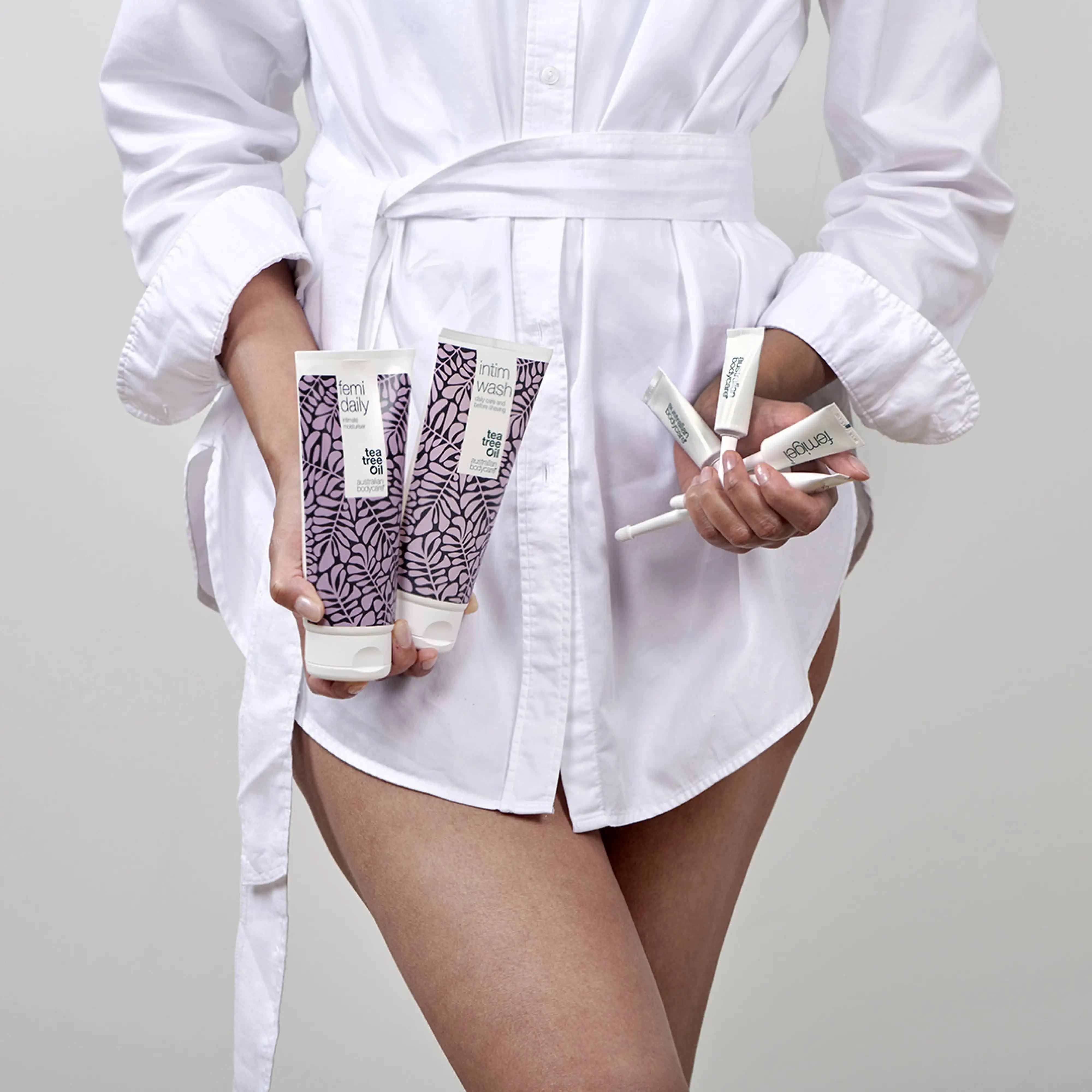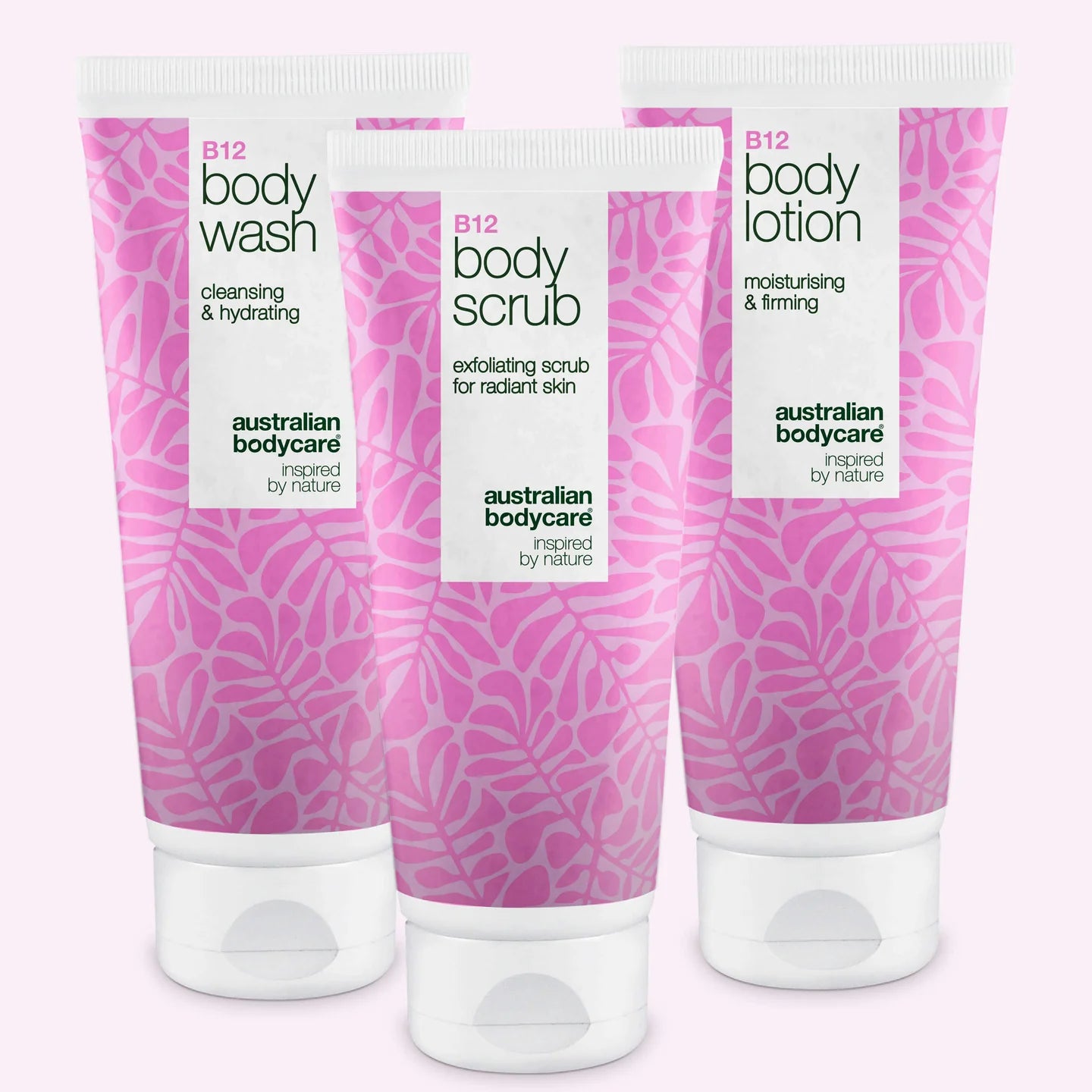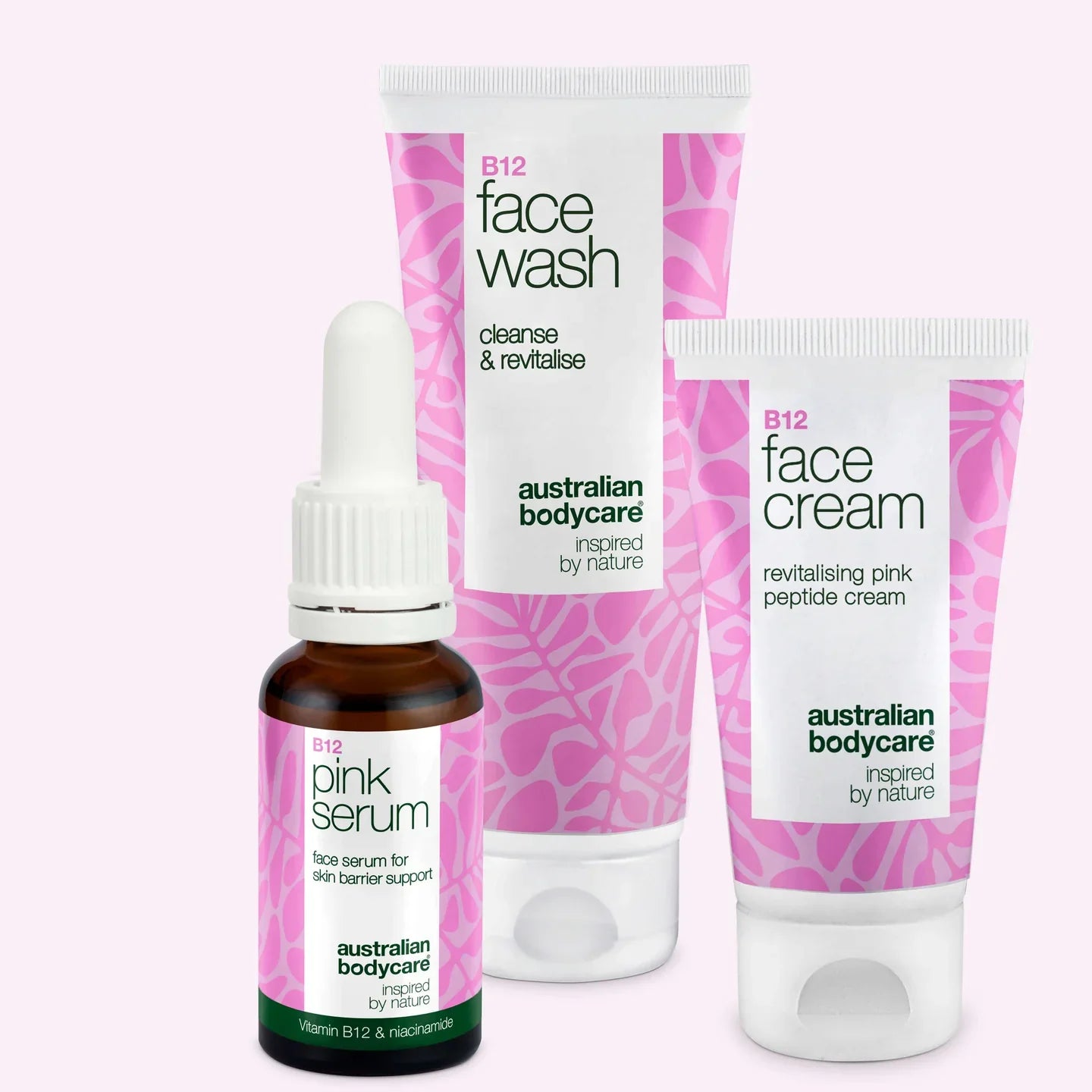Anal itching – causes, treatment and prevention of itching around the anus
Anal itching is a very common disorder. There can be several different reasons for itching around the anus. Fortunately it is quite harmless in the great majority of cases, and there are good treatments that work fast.
Table of contents
What is anal itching?
Everyone has had an itchy bum at one time or another. Often it soon stops again, but for some people it can be a serious long-term problem. And unfortunately, there are many who suffer in silence and do nothing about the problem. Many people consider itching, irritation and stinging in precisely that area to be embarrassing, and not something we normally talk about.
Anal itching is not a disease, but a symptom of something else. The itch is the result of skin irritation around the anus, which may be caused in different ways.
Itching at the anus is experienced by children and adults of all ages. It is seen in both men and women, although men suffer slightly more often from anal itching than women – it is not known precisely why.
The symptoms can range from a slight and almost insignificant itch to an extremely uncomfortable stinging and burning sensation around the anus.
Anal itch at night
It is quite normal for itching around the anus to vary in intensity during the day and night. It is not unusual to have problems with anal itching especially at night. Not least in children, itchy bottoms in the evening and at night can be quite common.
The symptoms of anal itching are tenderness, irritation, itching, pain, stinging, and a burning sensation around the anus. Although anal itching can occur at any time of day, many will find their bottoms itch in the evening and especially during the night. The symptoms of anal itching appear most often at night, because it is warmer and more moist around the anus when you are asleep or just after you have been to the toilet. You can try to solve the problem yourself by washing with a mild shampoo after going to the toilet, avoiding tight underwear, and possibly applying a cream for anal itching, before you go to bed.
Itching in the anus
Itching in the anus is not a disease, but more a symptom. Anal pruritis may be a symptom of a number of different complaints, such as piles, fissures in the anus or eczema. Anal itching is felt as discomfort in and around the anus in the form of a stinging, burning sensation or an itch. It may vary from slight discomfort to severely troublesome.
It is not always possible to find the cause of an itchy bottom, but the most usual causes are haemorrhoids (piles), cracks in the anus opening (fissures), poor personal hygiene or excessive hygiene, or a bacterial or fungal infection. In children the itch may be due to threadworms, or nappies not being changed often enough. If you have trouble with itching near the anus, you can try applying cream for anal itching to the area. If the cream is not effective, you should visit your doctor, as the cause may be a more serious illness.
What are the causes of anal itching?
While the symptoms of anal itching are quite similar (itching and stinging, so it is almost impossible to resist the urge to scratch), the annoying itch may be due to any of several different causes.
The overall cause of an itching bottom is irritation of the skin in and around the anus. It is not always possible to find precisely what causes the itch, but these are some of the most usual causes:
- Haemorrhoids are one of the most common causes, and will often lead to itching round the anus. In sufferers from haemorrhoids the area around the anus is more moist, and itching arises more easily in a moist environment.
- Poor hygiene may result in itching around the anus. It is therefore important always to take your time and wipe yourself thoroughly when you go to the toilet. Avoid using rough toilet paper, which is hard on the skin. If it is difficult to maintain good hygiene, for instance because of skin flaps that are in the way (possibly as a result of earlier haemorrhoids), it may be necessary to have them removed surgically.
- Excessive hygiene can actually cause anal itching too. While it is obvious that poor hygiene can cause anal itching, it can really be caused by overdoing hygiene too. If you wash yourself too thoroughly and too often, you remove natural fats from the skin, and then you are more vulnerable to skin problems such as itching. So always use an antiseptic soap when you wash – and avoid rubbing and scrubbing. Remember to use soft toilet paper when you use the toilet, too. Coloured and perfumed toilet paper may brighten up and smell good in the bathroom, but it may also be the cause of anal itching, so keep to unperfumed (and uncoloured) toilet paper.
- Threadworms cause itching in the anus – not least in the evening and at night. Although they are considered a children’s problem, adults can have threadworms too. The tiny worms are clearly visible in the anal opening and in the stools.
- Cuts in the anal opening (also called fissures) can cause itching. They may for example arise after constipation or after diarrhoea.
- Boils near the anus will normally also cause itching. There can be several different reasons for a boil to form. It is important, however, to do something about both the boil and the itch.
- Skin diseases such as psoriasis may cause itching dry skin anywhere on the body, and thus round the anus too.
- Eczema near the anus will normally also cause itching. The eczema may have different causes, such as haemorrhoids, fissures or outpouching.
- Fungal or bacterial infections usually cause itching, so if you have a fungal or bacterial infection in or around the anus, it will itch.
- Outpouching of the anal mucous membrane (anal prolapse) or outpouching of the rectum (rectal prolapse) can cause itching at the anus. When pressing against the anus, the outpouching is turned inside out, and it can then be difficult to keep the area clean after visits to the toilet, and again, easily leads to itching.
- Antibiotics may cause anal itching. Some people may have problems with anal itching after treatment with antibiotics.
- Some foods such as coffee, chocolate, beer, nuts, spicy food or dairy products may cause anal itching in some people.
Treatment of anal itching: How can itching around the anus be treated?
The treatment of anal itching depends entirely on what has caused the itching.
- For example, if the itching is due to haemorrhoids, then you must get some salve from your doctor to treat the haemorrhoids.
- If the itch is cause by threadworms, then they must be treated, and the itching will stop.
- If the itching is caused by skin flaps that make it difficult to maintain good hygiene, then the solution may be to have the skin flaps removed.
- If the anal itch is due to fungal infection, bacteria or eczema, you can buy gel for anal itching, which in the great majority of cases will put an end to the itching.
- If the anal itching is due to poor hygiene or excessive attention to hygiene, you should consider what you can do differently in future, but here and now you need something that can stop the itching. You can do that with a cream for anal itching.
Gel for anal itching
If you are troubled by itching, stinging and irritation around your anus, you can use a gel for anal itching with Tea Tree Oil. Gel for anal itching with Tea Tree Oil cools and stops the itching, while at the same time it builds up new healthy skin.
Tea Tree Oil is known to be antibacterial and is effective against itching and irritation. This means anal itching gel with Tea Tree Oil is ideal if you are troubled by anal itching, stinging and irritation. You can use a cream for anal itching which has been developed to combat discomfort in intimate areas. Apply the gel to the area daily to stop the itching and irritation. In addition, we recommend intimate wash for daily washing to keep the area clean and healthy and free of bacteria.
If you have trouble with an itching anus when you have eaten particular foods, it might be a good idea to avoid them in future.
Even if it seems almost impossible to resist the urge to scratch when your bottom really itches unbearably, it is best not to scratch. The same applies as with itching on any other part of the body: scratching simply makes it worse. You also risk scratching to the point where you damage the skin and cause small cracks.
It is important to emphasise that if you find blood in your stools or blood in your anus, you should always consult your doctor. In the great majority of cases, the cause will be quite harmless, but in rare cases the itching may be caused by something serious, for example colorectal cancer.
How can anal itching be prevented?
The best way to prevent anal itching is to avoid the causes of the itch. If you suffer from anal itch because of haemorrhoids (piles), you should find out how to avoid the occurrence of new haemorrhoids, and one way is to avoid constipation.
Use a cream with Tea Tree Oil for anal itch daily to prevent itching at the anus
By using cream for anal itch daily, you can prevent problems with itching, stinging and irritation around the anus. Apply the cream as required around the anus once a day. The cream combats bacteria and itching, which means it is effective for anal itching.
Additionally, good hygiene is one of the best ways in which you can prevent anal itching. Make sure you wipe yourself thoroughly, and if necessary wash, after using the toilet. On the other hand, you must not wipe and wash yourself so much that you damage and irritate the skin. You should never use perfumed soap around the anus: it irritates the skin unnecessarily. Avoid coloured and perfumed toilet paper too, since the perfume and dyes can irritate the skin.
If you want to use more than just water to wash with, you should always choose good products. Choosing Intimate Wash from Australian Bodycare for example, means you have a gentle, but effective soap that cleanses, combats bacteria, and ensures good hygiene. Intimate Wash can be used on all parts of the body. Antiseptic Tea Tree Oil is also effective against dirt and bacteria.
In some countries people often use a bidet or toilets with a rinsing function, and they are not a bad idea when it comes to dealing with anal itch. Toilet paper is not always enough. Water cleans more effectively. Even if you do not use a bidet, you can wash thoroughly with water and a mild soap that is gentle on the skin, every time you take a bath.
FAQ about anal itch
What are the causes of anal itch?
When it itches in and around your anus, it means the skin is irritated. There are many possible causes. It may, for instance, be due to haemorrhoids, poor hygiene or excessive hygiene, threadworms, scratches or boils in the anal region, eczema or skin diseases, outpouching around the anus, fungal or bacterial infection, or use of antibiotics. In some people, eating certain foods may also cause anal itching.
How can I stop anal itching?
An itching anus is troublesome and uncomfortable, but fortunately, it is easily curable in most cases. The treatment depends on what has caused the itching. Often the treatment will consist of a gel or cream with Tea Tree Oil applied around the anus.
Is anal itching serious?
Anal itching is uncomfortable, but seldom serious. In the great majority of cases, the itch is due to something quite harmless, but it must naturally be dealt with. The itching will stop quite fast if the condition that causes it is cured. Only in very seldom cases is anal itching caused by something more serious, such as colorectal cancer.
Is anal itching always caused by poor hygiene?
Many different things can cause anal itching. Poor hygiene is one of them, but in fact overdoing hygiene can also result in an itching anus. Furthermore, there may be many other reasons why you suddenly have an itch in the anal opening. But naturally, good hygiene in the anal area is always important. Good hygiene means ensuring that you wipe yourself thoroughly after using the toilet, and generally keeping the area clean.
My anus itches – have I caught threadworms?
Itching in and around the anus may be caused by threadworms (which can also affect adults, although they are most common in children). If you have threadworms, they will be visible around the anal opening and in the stools. Threadworms must be treated with medication, which requires a prescription from your doctor. There are many other possible reasons for anal itch. It may for example be due to haemorrhoids, poor hygiene or even exaggerated hygiene, scratches, boils, eczema, or other causes.





